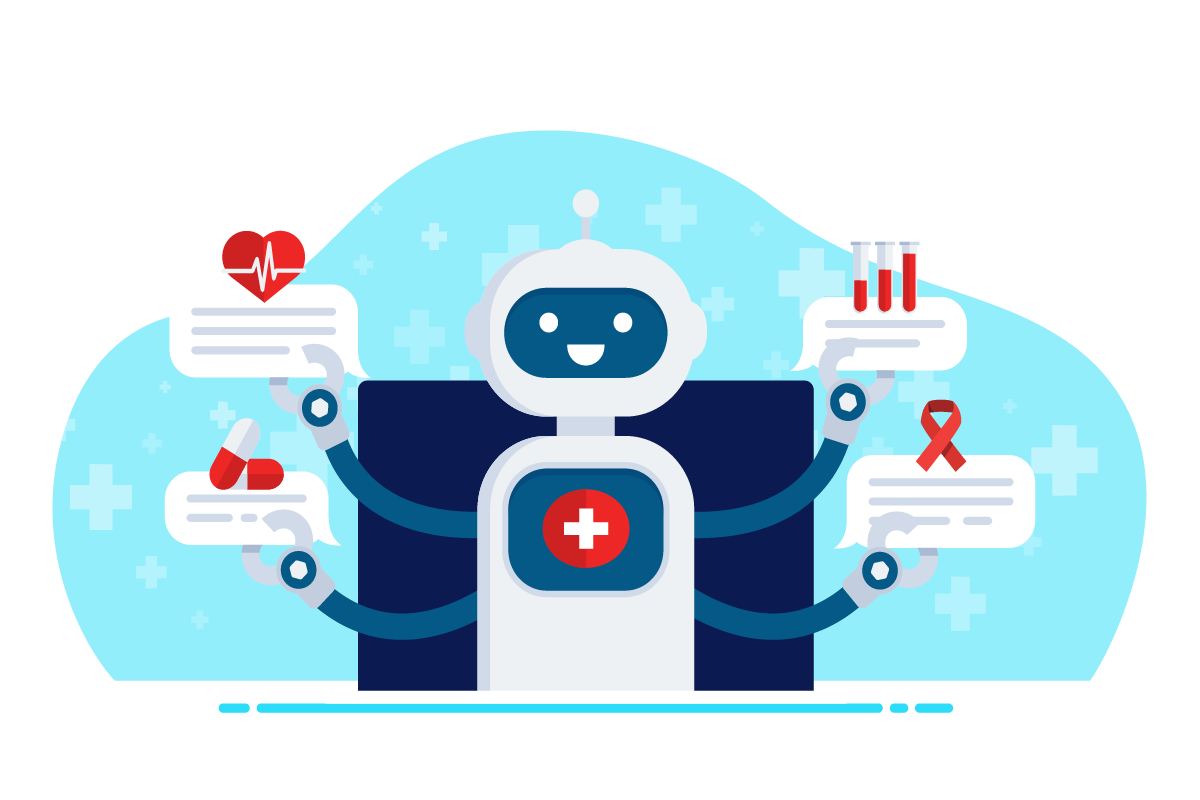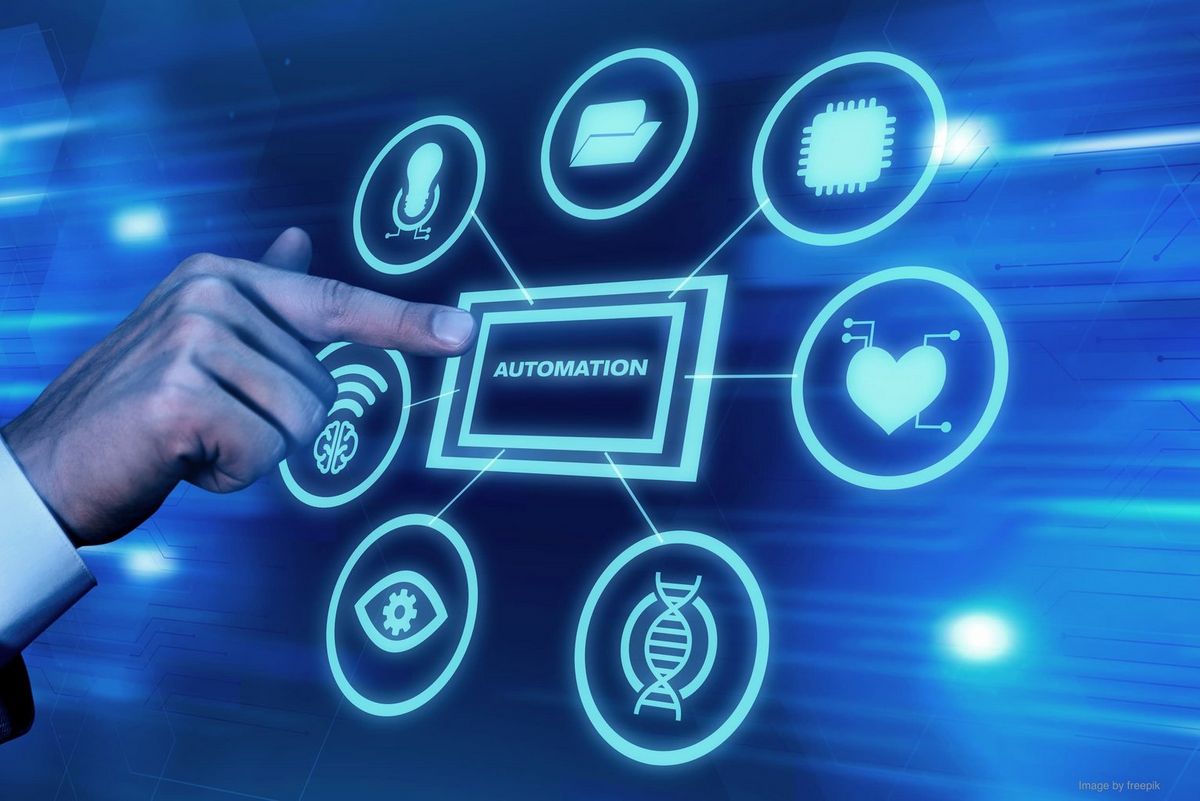How Automation Tools Are Transforming Healthcare Operations
How Automation Tools Are Transforming Healthcare Operations and Patient Support
The healthcare industry is evolving rapidly, driven by the increasing demand for higher efficiency and better patient care. One of the most significant drivers of this transformation is automation in healthcare systems. Automation tools and AI solutions for medical services are streamlining workflows, reducing manual processes, and enabling faster, more accurate care. As hospitals adopt intelligent healthcare automation platforms, they achieve operational excellence while improving patient experiences. This blog explores how healthcare providers can benefit from AI-driven automation in clinical settings and offers practical steps for seamless adoption.
The Growing Need for Automation in Healthcare Systems
Healthcare facilities face numerous challenges, including staff shortages, administrative burdens, increasing patient volumes, and the need for cost-efficient operations. These issues can lead to bottlenecks that affect care delivery and patient satisfaction. Automation addresses these challenges by handling repetitive, time-consuming tasks, allowing healthcare professionals to focus on their core responsibilities caring for patients.
By deploying healthcare automation software, providers can reduce the risk of human error, accelerate processes, and ensure patients receive the right care at the right time. Hospitals that integrate AI for enterprise systems into their operations benefit from enhanced workflows, increased data accuracy, and better decision-making capabilities.
How Automation Tools Improve Healthcare Workflows and Patient Experience
Streamlining Clinical and Administrative Operations
Automation improves healthcare workflows by automating repetitive processes such as appointment scheduling, billing, and patient communication. This streamlining reduces administrative burdens and minimizes errors. Hospitals using AI-driven automation in clinical settings can efficiently manage electronic health records (EHRs), ensuring seamless data entry and retrieval. Key areas where automation enhances operations include:
- Appointment Management: Automated scheduling systems send reminders to patients, reducing no-shows and ensuring optimal utilization of healthcare resources.
- Billing and Insurance Processing: Automation tools verify insurance details, generate bills, and handle claims efficiently, reducing payment delays.
- Inventory and Supply Chain Management: AI-powered systems track medical supplies in real-time, ensuring timely restocking and avoiding shortages.
- Patient Data Management: Automated data entry minimizes human errors and ensures that healthcare providers have access to accurate patient records.
Enhancing Patient Engagement with AI Chatbots
AI chatbots in healthcare play a crucial role in patient engagement by providing instant assistance and support. These chatbots can handle a range of tasks, from answering general inquiries to helping patients schedule appointments. They operate 24/7, ensuring that patients receive timely responses, even outside of clinic hours.
AI chatbots also facilitate automated patient communication, sending follow-up messages, medication reminders, and post-discharge care instructions. This real-time engagement improves the overall patient experience, leading to better health outcomes.
Key AI Tools Supporting Hospital Management Systems
AI tools integrated into hospital management systems improve operational efficiency and help healthcare providers deliver personalized care. Some essential tools include:
- AI-Powered EHR Systems: These systems automate data entry, extract relevant information, and provide actionable insights to healthcare providers.
- Predictive Analytics Tools: AI analyzes patient data to predict health outcomes and identify potential risks, enabling proactive care.
- AI-Enhanced Diagnostics Platforms: These platforms assist in analyzing medical images and lab results, reducing diagnostic errors and improving accuracy.
- Virtual Assistants for Patient Care: Intelligent virtual assistants support clinical staff by managing schedules, answering routine questions, and assisting with documentation.
These tools not only reduce the workload for healthcare staff but also ensure that patients receive timely and accurate care. Hospitals leveraging AI solutions for medical services can achieve significant improvements in both efficiency and patient satisfaction.
Steps to Deploy AI-Based Automation in Healthcare Operations

Implementing automation in healthcare requires careful planning and execution to ensure a smooth transition. Below are the essential steps for deploying AI-driven automation in clinical settings:
Step 1: Assess the Needs and Identify Gaps
Healthcare providers must begin by evaluating their existing workflows and identifying areas that can benefit from automation. For example, hospitals with high appointment cancellation rates can focus on automating patient reminders.
Step 2: Choose the Right AI Tools
Selecting suitable tools is critical for successful automation. Hospitals should look for solutions that align with their goals, such as AI chatbots in healthcare for patient communication or predictive analytics for clinical decision-making.
Step 3: Integrate with Legacy Systems
Smooth integration with existing healthcare systems, including EHRs, is essential to avoid disruptions. Providers can benefit from AI for enterprise solutions that offer seamless integration capabilities.
Step 4: Provide Staff Training
Comprehensive training ensures that healthcare staff understand how to use new automation tools effectively. Training helps in overcoming resistance to change and maximizes the benefits of automation.
Step 5: Monitor Performance and Optimize
Once automation tools are deployed, continuous monitoring is necessary to ensure optimal performance. Healthcare providers should track key performance indicators (KPIs) and make improvements where needed.
Benefits of Automated Patient Communication
Automating patient communication has a direct impact on care quality and patient satisfaction. Hospitals using AI chatbots in healthcare provide better engagement and support throughout the patient journey. Key benefits of automated communication include:
- 24/7 Availability: Patients receive instant responses to their inquiries at any time, improving their experience.
- Reduced Appointment No-Shows: Automated reminders help patients stay on top of their appointments, ensuring continuity of care.
- Enhanced Post-Treatment Care: Automated messages provide patients with follow-up instructions, improving recovery outcomes.
- Real-Time Feedback Collection: Hospitals can collect feedback immediately after appointments or procedures, allowing them to address issues promptly.
These benefits help healthcare providers build stronger relationships with patients and foster trust.
Real-World User Experience with Healthcare Automation
Hospitals that have adopted automation in healthcare systems report significant improvements in both operational efficiency and patient satisfaction. For example, a large hospital in the U.S. implemented AI solutions for medical services to automate appointment scheduling, resulting in a 20% reduction in no-shows and a 30% increase in patient throughput.
Healthcare staff also benefited from reduced administrative workloads, allowing them to dedicate more time to patient care. One hospital administrator noted, “Our team can now focus more on patient interactions rather than paperwork, thanks to the automation tools we have integrated.”
This improved experience extends beyond the hospital staff to patients as well. With AI chatbots in healthcare, patients receive timely responses and feel more engaged in their care plans, resulting in higher satisfaction scores.
Conclusion
The adoption of automation in healthcare systems and AI solutions for medical services is transforming the way healthcare providers operate. From optimizing hospital operations with AI to deploying intelligent healthcare automation platforms, these tools ensure better workflows, enhanced communication, and improved patient care. Healthcare providers who embrace automation will not only streamline their operations but also enhance patient satisfaction and staff efficiency.
As the healthcare industry continues to evolve, the integration of AI for enterprise systems and AI chatbots in healthcare will play a crucial role in delivering personalized care at scale. The key to success lies in careful planning, seamless integration, and continuous monitoring, ensuring that healthcare providers unlock the full potential of automation.
Frequently Asked Questions (FAQs)
Q1: How does automation improve healthcare workflows and patient experience?
Automation reduces repetitive tasks, improves data accuracy, and ensures seamless communication, allowing healthcare providers to focus on patient care.
Q2: What are the key AI tools that support hospital management systems?
AI tools such as predictive analytics, EHR automation, virtual assistants, and AI-powered diagnostics enhance hospital management.
Q3: What are the steps to deploy AI-based automation in healthcare operations?
Hospitals should assess their needs, select appropriate tools, integrate with legacy systems, train staff, and monitor performance for continuous improvement.
Q4: How can healthcare systems benefit from automated patient communication?
Automated communication improves engagement, reduces missed appointments, enhances post-treatment care, and enables real-time feedback collection.














Post Comment